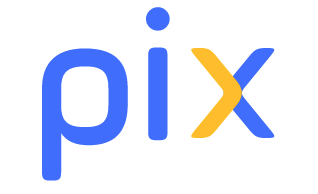World Youth Skills Day: Youth in the face of digital blur
I wouldn’t teach you anything by reminding you that our world is constantly changing. Digital and new technologies perfectly embody this change. These innovations impact all areas of the world of work. While there are many positive impacts, it all blurs the future a bit. Where thirty years ago, we knew the fundamental skills to succeed in a given profession, it is difficult today to list these skills with certainty. Today’s professional world will not be that of 2030. An observation that complicates the choices of our young people who no longer know what to do with.
Adaptability, the most sought-after quality
In France, each year, in order to give an idea of the changes in the skills required, companies with more than 150 employees must take a process known as GPEC (Management planning for employment and skills). The GPEC makes it possible to anticipate the future skills and workforce that the company will need. In recent years, there has been an increasing demand for certain skills.
To read also: Pôle emploi on TikTok: the com ‘in toc that makes you tick
The automation of certain jobs is responsible for a decrease in the demand for employees for so-called routine jobs, requiring very little cognitive skills. If it is falling on one side, it is because it is increasing elsewhere. According to World Development Report 2019 carried out by the World Bank Group since 2001, the share of jobs requiring non-routine cognitive skills has increased from 19% to 23% in countries with emerging economies and from 33% to 41% in countries with advanced economies. In short, the world of work is moving more and more towards people able to solve problems and conduct reasoning. Generalist profiles are preferred over specialized profiles. Trades characterized by the repetition of tasks, often manual, are gradually disappearing.
In addition to these sharp cognitive skills, there are socio-behavioral skills such as creativity, the ability to work in a team and curiosity. These skills are not necessarily technical skills. They relate rather to the attitude towards his missions and towards others. When we combine these socio-behavioral skills with cognitive skills, we obtain a versatile profile, adaptable to several environments. Bingo! In this changing world, companies are looking for employees capable of adapting.
Digital education is gaining ground
OK, you have to know how to adapt, but in addition, some fundamental digital skills are essential to master. A baby is holding a phone before even knowing how to walk. Digital culture is today one of the essential skills. And even if this generation is born with a smartphone in hand, it does not always master digital. Yep, there is a difference between making an Excel spreadsheet and being brilliant at Animal Crossing.
Communication tools such as social networks and corporate networks have revolutionized the way of thinking and organizing work. Cooperative work is now an integral part of the business world. Being comfortable with new technologies is not an option for professional success, it is an obligation.
In France, the National Education took the situation in hand. Be careful, the ambition is not to germinate computer scientists everywhere in France but to awaken each young person to the challenges of digital technology. In college, computer science education is now part of the school curriculum. In particular, students must create an account on the Pix platform from the 5th grade. Accompanied by their teachers, they do exercises and acquire digital skills on the platform, throughout their schooling. From the Seconde, every week, the pupils, everywhere in France, follow the course “Digital and technological science” for 1h30.
In Première then Terminale, there is now even a specialty “Digital and computer science”. At the end of Terminale, students take a digital certificate on Pix. The certificate attests to the mastery of digital skills by the student. By educating early in the media and information, the National Education encourages the development of digital skills and a reasoned use of digital tools.

In 2020, GEN (Grande Ecole du Numérique) trained nearly 15,000 people in digital-related professions, 59% of whom were young people with a baccalaureate level or below. In 2019, the CRCN (Digital Skills Reference Framework) was published. Providing a point of reference for teachers and students, it lists sixteen digital skills expected with a view to professional integration. It also stipulates the obligation of an assessment of these skills in CM2, 6ème, 3ème then at the end of high school with the Pix certificate.
On this World Youth Skills Day, the watchword is to invest in our youth. It is the duty of our society to provide the tools and digital knowledge necessary for young people to ensure succession for the years to come. All in a logic of sustainable development.

